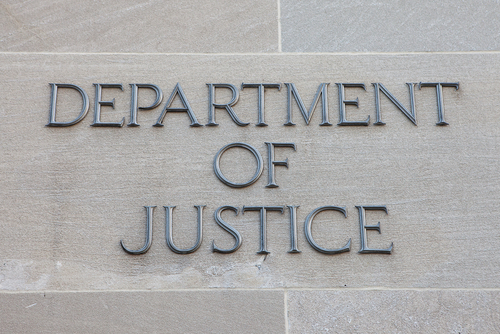The Department of Justice’s recommendation for a mere one-day sentence for the officer convicted in the Breonna Taylor case has left many questioning the very foundation of justice in this country.
DOJ’s Controversial Recommendation
In an astonishing move, the Department of Justice has recommended that Brett Hankison, the officer convicted of violating Breonna Taylor’s civil rights, serve just one day in prison. This decision, which could have had Hankison facing life imprisonment, has sparked outrage among Taylor’s family and supporters. The DOJ’s memo emphasized that since Hankison’s shots did not hit Taylor or anyone else, and that he poses no public threat, there’s no necessity for a lengthy prison term.
This recommendation was notably signed by political appointees rather than the career prosecutors who tried the case, leading to resignations within the DOJ. Such an internal rift highlights the tension between political agendas and the pursuit of justice, leaving many to question the motivations behind this lenient sentence.
Public and Political Backlash
The backlash from this recommendation has been swift and intense. Breonna Taylor’s family has expressed deep disappointment, arguing that this decision undermines accountability and sets a dangerous precedent for future cases of police misconduct. Louisville’s mayor, Craig Greenberg, has also criticized the DOJ’s call for leniency, stating that Hankison’s actions deserve a significant prison sentence to uphold justice and accountability.
Stakeholders and community activists fear that such a decision could erode public trust in the justice system, particularly among communities of color who have long advocated for systemic change and accountability in policing. The lenient sentence could deter future aggressive enforcement of civil rights laws, a concern that has been voiced by many civil rights advocates.
Implications for Civil Rights Enforcement
While some argue that Hankison’s defense team presented valid points — emphasizing the initial shot fired by Taylor’s boyfriend and Hankison’s safety concerns in prison due to his status as a former officer — the broader implications of the DOJ’s recommendation cannot be ignored. The decision reflects a potential shift in federal civil rights enforcement priorities under the current administration, which could have lasting effects on nationwide efforts for police reform.
The precedent set here may influence how future cases of police misconduct are prosecuted and sentenced, potentially discouraging vigorous pursuit of justice in similar instances. The DOJ’s approach under different administrations underscores the politicization of civil rights enforcement, leaving many to wonder about the future trajectory of justice in America.

